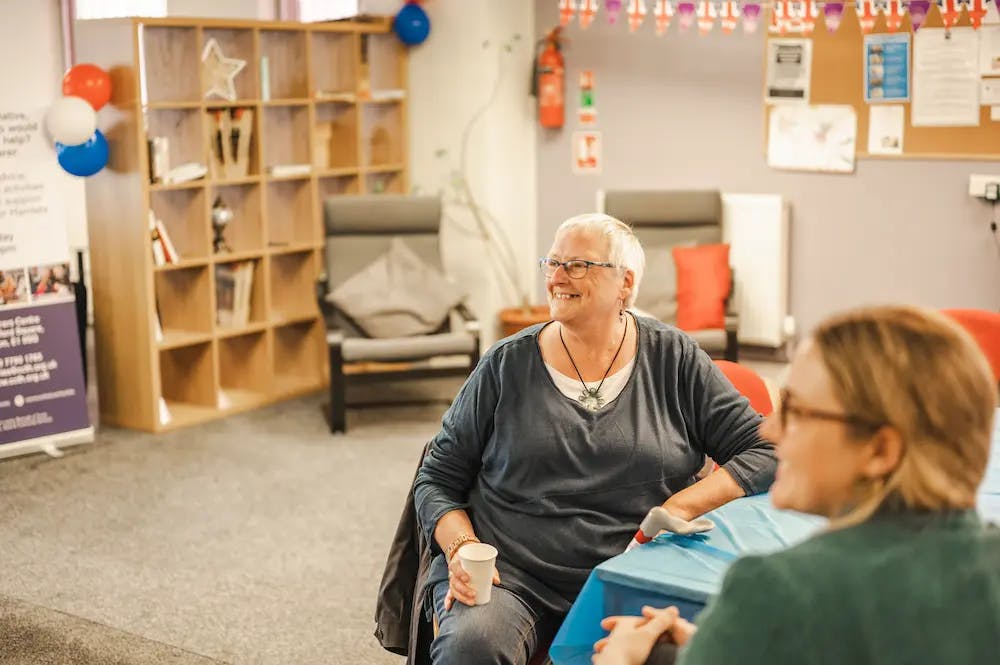Everything You Need To Know About Assisted Living (Extra Care Housing)

Estimated Reading Time: 6 minutes
Assisted living, also known as extra care housing, is a type of housing with additional care available, including personal care. Assisted living can be thought of as halfway between a care home and a retirement home, for anyone who wishes to still live independently, but may require a little extra day-to-day support.
In this article, we’ve explained everything you need to know about assisted living, including the different types, the costs, advantages, disadvantages and how to find assisted living near you.
Where would you like to live?
Browse the best retirement homes near you through Lottie.
In this article:
- What is assisted living?
- What is classed as assisted living?
- Who qualifies?
- Assisted living costs
- Advantages of assisted living
- Disadvantages of assisted living
- How to find assisted living near you
What Is Assisted Living?
Assisted living facilities and homes provide a greater level of support than sheltered housing, but still allow you to maintain your independence in a self-contained property, with staff on hand to provide care where needed.
You can be supported with things like getting dressed and undressed, eating, medication management and domestic assistance with things like food preparation and cooking, shopping and laundry.
There may also be communal facilities and activities to help you stay connected with similarly-aged people.
While UK assisted living developments aren't regulated by organisations such as the Care Quality Commission (CQC), many offer additional care services. These are usually optional - some developments provide this themselves as part of an enhanced care package, while others outsource this care through a care agency.
Is assisted living suitable for people with dementia?
Assisted living may not be enough for people with dementia. In this case, live-in care with a nurse available 24/7 or living in a dementia care home may be the better option.
What Is Classed as Assisted Living?
Assisted living can vary from self-contained properties such as groups of houses to apartments within a larger building. In some cases, properties aimed specifically at older adults such as retirement housing can be classed as assisted living, depending on what they offer.
Assisted living properties are usually secure and can’t be accessed by the general public. Only residents and staff will have access, and visitors usually need to be admitted.
Some assisted living communities will contain various leisure facilities for residents to use, such as gardens for relaxation, cafés and restaurants, lounge areas, fitness suites, libraries, beauty salons and more.
Who Qualifies For Assisted Living In The UK?
To qualify for assisted living, you’ll often need to be assessed by your local council, to determine whether an assisted living facility can meet your care needs. This usually depends on your health condition and how much daily assistance you need.
The application process varies from area to area, so you might want to contact your local authority or social services department to learn more.
There may also be a minimum age requirement for assisted living. This is often 55, 60 or 65 plus.

Assisted Living Costs
The cost of assisted living is often less expensive than that of a residential care home. This is because the amount of care residents require is less.
Our internal data shows that when paying yourself, the average cost of UK residential care is £1,406 a week, or £6,093 a month.
The cost of assisted living depends on several factors, such as:
- Location
- Whether you’re renting or buying
- What facilities are available
- The level of care required
Various ongoing fees come with assisted living, along with a service charge to cover the care you’re receiving.
You’ll likely also pay for council tax, water and energy bills when living in an assisted living facility.
It’s important to understand what charges you have to pay - including any one-offs such as exit fees or deferred management fees - before making any commitments.
Renting assisted living
Renting assisted living makes sense if your or your loved ones’ needs are likely to change in the future, so moving to a care home becomes necessary. Many people choose to rent when they can’t or don’t want to purchase a property.
Many people rent assisted living by joining a waiting list through their local council. However, some local councils don’t allow people to join their waiting list if they own a property. This differs from council to council, so it’s something you should directly discuss with them.
Understanding the terms of your tenancy if you’re renting with a private landlord is important, as many private tenancies provide very little security for tenants.
Buying assisted living
Most assisted living housing is sold on a leasehold basis (so you purchase the right to live in the property for an agreed period, but you don’t own the land the property is built on). This can lead to restrictions in the lease if you want to sell the property or leave it to a loved one in your will.
Before purchasing assisted living, request a full breakdown of fees.
Advantages of Assisted Living
- A helping hand with daily tasks
- Personal care is given to those who need it
- Knowing care and support are available will give your loved ones peace of mind
- Assisted living is known for providing high levels of satisfaction to residents. The Quality of Life in Assisted Living Survey showed that 87% of residents who moved into assisted living and 78% of their family members said they were happy with the overall experience within the community
- Being surrounded by similarly-aged people will ward off any feelings of isolation and loneliness
- Assisted living encourages independence in care, allowing you to make the most of your later years
Disadvantages of Assisted Living
- Assisted living facilities usually can’t provide the level of medical care given in a nursing home. Whilst some assisted living facilities do offer skilled nursing care, nurses might not be available 24/7
- Assistance is sometimes offered on a scheduled basis, rather than being available whenever needed
- Always having carers around can limit your privacy
How to Find Assisted Living Near You
If you have a care needs assessment by social services, your local council may recommend assisted living schemes in your area.
Your local council may also be able to advise on any documentation you need to provide and any other assessments that may be necessary.
EAC Housing Care has a directory of extra care and assisted living houses available throughout the UK. Their directory is split into the English counties, along with assisted living in Wales, Scotland and Northern Ireland.
You can also apply for sheltered housing - which is similar to assisted living - through GOV.UK.
Assisted Living Alternatives
If your loved one requires care on a daily basis and their needs are increasing, they may be better suited to a care home.
We list a variety of care home types, including:
- Residential care homes
- Nursing homes
- Dementia care homes
- Respite care homes for short-term stays
We also offer retirement homes throughout the UK. These are exclusively aimed at older adults, with many of these developments providing additional forms of care and support as well.
Retirement homes differ from assisted living as the level of care provided to residents is generally lower.
For example, Wilton Court in Warwickshire offers 24/7 support, personal care and assistance with domestic tasks.
Loading FAQs...



